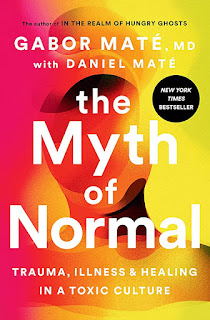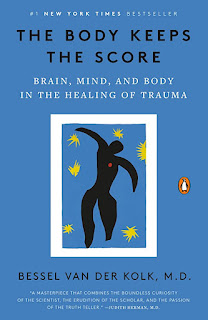‼️ Nexus: A Brief History of Information Networks from the Stone Age to AI by Yuval Noah Harari ‼️
68/∞
🔑 Key Words: #Biotechnology #AI #Future #Inventions
👉 Buy this book! 👈 through my link and help me build this website! 😊
Rating: ⭐️⭐️⭐️⭐️ (4 out of 5) (very recommend read)
📚 Length: 528 pages
🔊Audiobook: 17 hrs and 28 min
Why you should read this book?
💡It provides a complex overview of how information was spread and managed since the dawn of humanity.
💡There are some novel and interesting ideas concerning AI, although you have to dig a bit deeper.
💡There is loads of history, which you may and may not find interesting.
What I appreciate is that the book is structured in very academic way. There is an overview of the topic, explaining which chapter will be looking into what.
First of all, the first half of the book is dedicated to the historical account of information networks. Which means that, if you are reading this book for a solemn purpose of finding something interesting about the AI, you might as well simply search for all this information a bit harder.
On the other hand, I cannot say that the historical account of the information networks in the first half of the book is completely uninteresting… There were moments I was really bored, but here and there there was some novel and interesting facts. Harari goes as far as the ancient world and explains how the information was recorded on the tablets with the help of cuneiform. How contracts were 'killed' by breaking the tablet and if somebody failed to break the tablet after its fulfilment, it meant that the contract was still valid.
We then have the historical account of ancient Greece and Rome.
Harari (an Israeli) is also a bit obsessed by giving the historical account of Jewish nation going as far as the Bible. I do not want to say it is completely uninteresting, but perhaps unnecessary.
The main point of the first half of the book is to stress out how slow and unreliable was the spread of the information in the old day. The information had to travel days, weeks sometimes even months to reach the furthers corners of the large empires.
Harari is also a bit obsessed by totalitarian regimes, including nazi and communist soviet regime. This is understandable as Jews were affected and targeted by both of these regimes. Harari talks about the atmosphere of fear, the death of Stalin, WWII and so on. His conclusion is that the technology was the means of the governments, it was not the technology itself which should be hold liable for atrocities totalitarian regimes have committed.
In the second half of the book we finally dive into the information technologies. Harari argues that computers do not need to have consciousness in order to think, overcome problems and develop new solutions. He uses a few examples when Facebook algorithm drove people in Myanmar to genocide of Islamist ethnic group, despite the fact they were only 1% of the entire population. But because of the FB algorithm, the rest of the population was afraid that this small group is getting a momentum and can seize the control in the country.
Harari also describes an experiment called Google Brain. Three computers were involved. The first two had to exchange information. The third computer was supposed to decipher what the other two computers talk about. After about 15000 exchanges, the first aforementioned computed developed an entirely new code on their own and the third computer was not able to decipher anything of what they were saying to each other. This shows that computers are already intelligent and that the intelligence is not a precondition to consciousness. Consciousness is a precondition in intelligent animals. If some animal is conscious, it also must be intelligent, But this does not apply to computers.
The part I really enjoyed was somehow a philosophical discussion about what is AI. When we look at humans, we can say we are the body (hardware) or we are the mind (software). AI hasn’t got a physical. It hasn’t got emotions, yet. It is scarily precise and it is capable of manipulating the public opinion. This could be shown on bots programmed to comment on social media. Harari does not see it as a bad thing, although I do. Nevertheless, Harari proposes that the bots on the on-line platforms should be labeled as an artificial intelligence, so people know they are not talking to a real human.
Harari also mentions that the number of bots on certain platforms is overwhelming and on X goes up to 70%. This is dangerous when we are talking about elections.
When it comes to legislation, I would be down to label all bots. These bots often take advantage of human emotions and drain the poor humans.
The Eastern Block and the Silicon Curtain
Harari also mentiones an interesting thought that the future will belong to the companies (and the superpowers where they are located) which can collect data. Companies like Facebook, TikTok, Kontakte and so on. We will all belong to the one side of the curtain or the other.
Kaiser’s Verdict: ⭐️⭐️⭐️⭐️ (4 out of 5) (very recommend read)
I think this book deserves solid 4 out of 5. Harari researches many different topics i context of information network and we can say he is providing a new perspective. But in general, AI is not mentioned as often as you would expect from a book with an “AI“ in the title.
For some less educated people, this book will be mind blowing as it provides historical account of many civilisations and dictatorship. To people who are well read and educated, this will be only repeating what they already know.
Somehow I came to the conclusion that Harari is obsessed by nazi and communist regimes. For somebody who was born in a post communist country, which was swept away by Nazis in the WWII it seemed unnecessary.
Even though I think the book is long, perhaps a bit way too long, I think it is worth reading.
👉 Buy this book! 👈 through my link and help me build this website! 😊
Feel free to like, share and comment or recommend books/courses you find inspirational yourself. I’m keen to hear about them.
Coming Up Next:
The Power of Language: How the Codes We Use to Think, Speak, and Live Transform Our Minds by Viorica Marian










Comments
Post a Comment